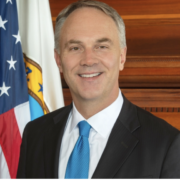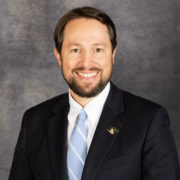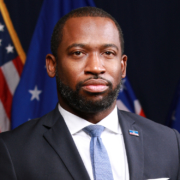In an effort to address the urgent need for affordable childcare options, Newport News Mayor Phillip Jones established ambitious goals to ensure children enter school ready to learn and be successful. As part of the city’s 2020-2025 Strategic Plan, he prioritized initiatives to increase the availability of high quality early education, particularly for low-income children. To fulfill this strategy, the city is partnering with the Peake Childhood Center and Virginia Peninsula Community College (VPCC) to develop and operate a fully accredited and licensed early childhood center.
The new spots made available by the center will help alleviate the current crisis in childcare availability, underscored by Peake’s current waitlist of more than 400 children, by doubling its capacity to serve 200 children from infant to four years old with tuition determined on a sliding scale based on a family’s ability to pay.
The center is part of a mixed-use project that includes housing, commercial space, and an on-site early childhood
educator program and classroom space. The cost of the project will be covered almost exclusively by the city’s American
Rescue Plan Act funds.
Additionally, VPCC will train the next generation of childcare professionals through its onsite credentialing program, allowing VPCC students to train by working directly with children.
The Peake Early Childhood Center will ensure that families who struggle financially have access to a center that addresses early education for their children and supports the broader needs of individual families and the city. In addition to early education’s many immediate benefits to parents and long-term impacts on kids, research shows that a lack of childcare costs businesses $4.4 billion annually because parents/guardians must be absent from work to take care of their children.
The new facility is expected to open in the fall of 2024 and, as a result of the initial kickstart by ARPA, has leveraged additional private investments.












